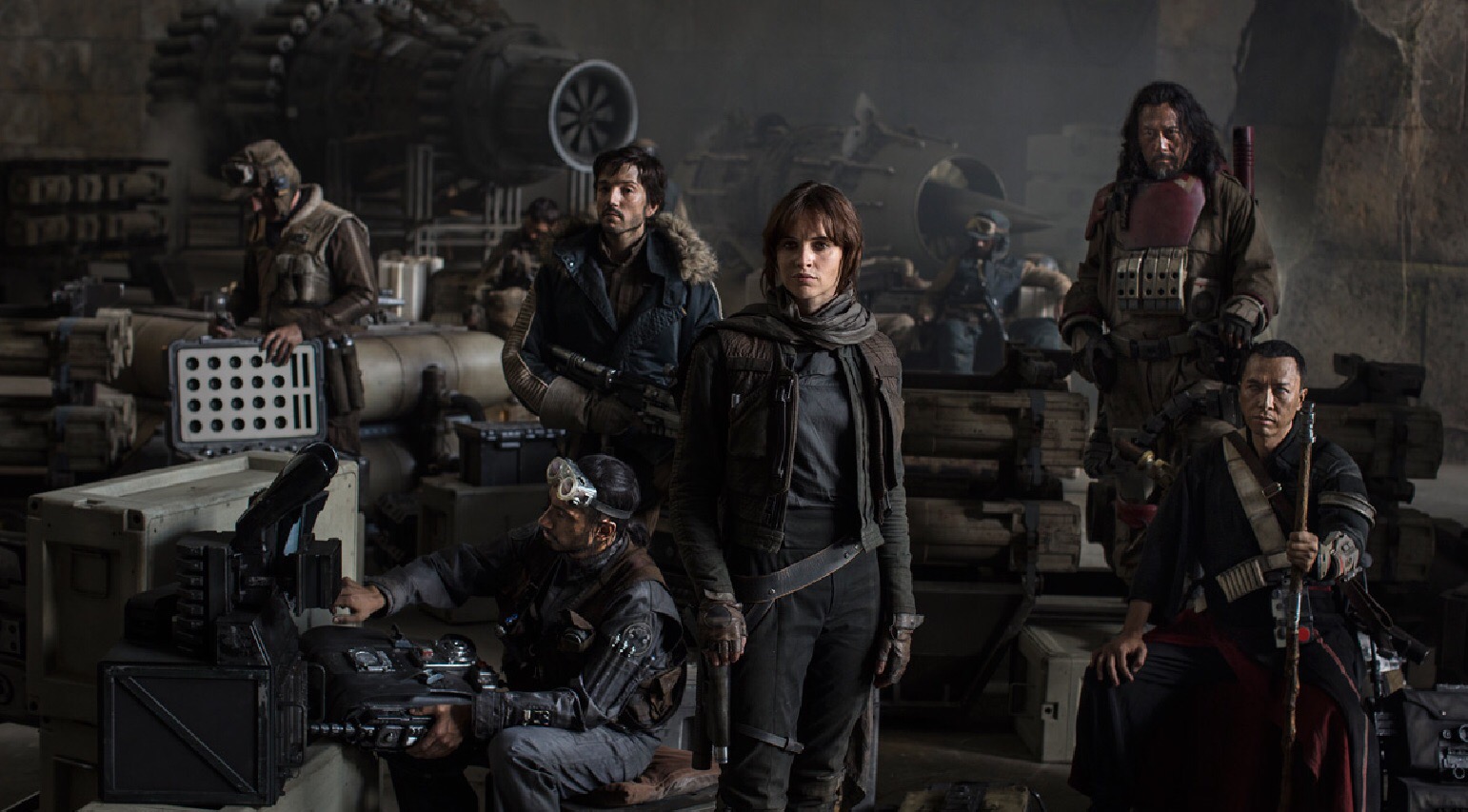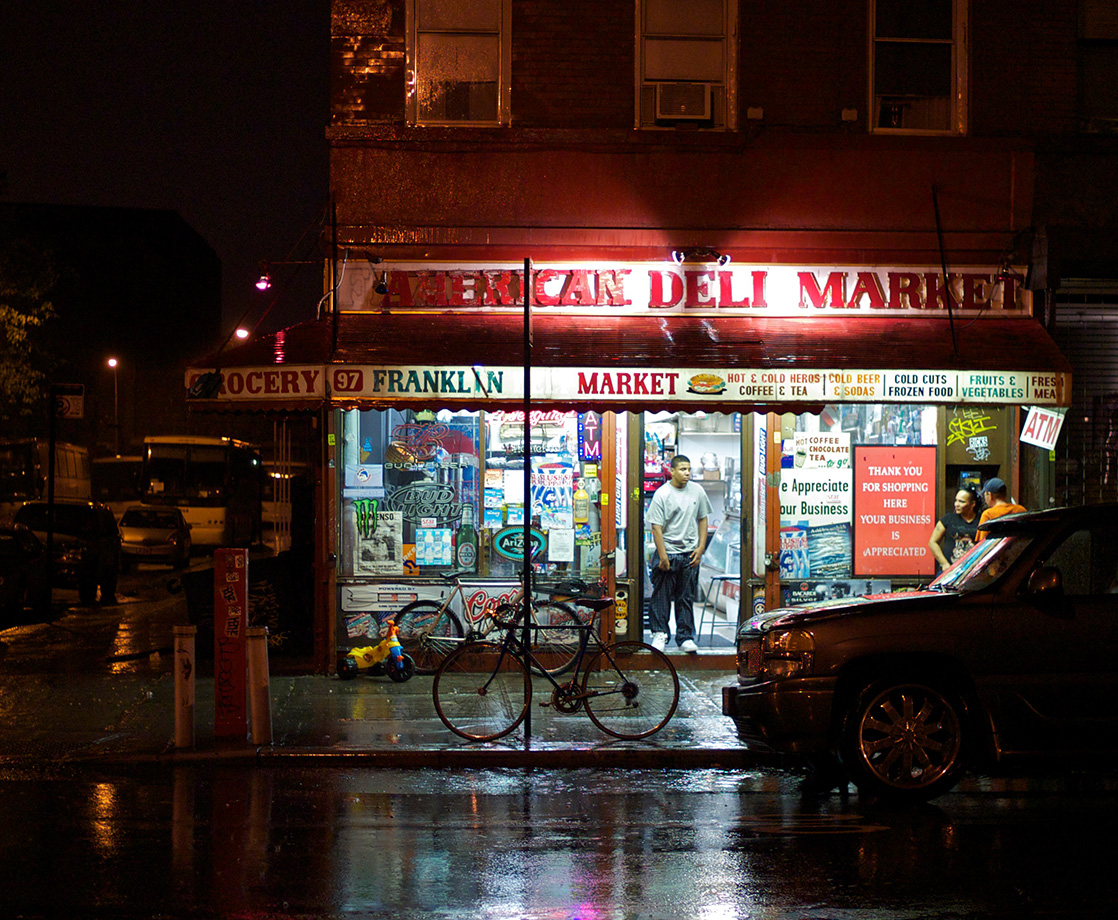Choosing the 10 best movies of the year is a fun, yet difficult, yet torturous activity.
First, you’ve got to compile all the movies in the running, an on-going process. There are always more movies you’ve got to see. What ends up making the list are usually the ones that stick in your mind. But second-guessing yourself is always in the mix.
Inevitably, you’re going to have to leave certain films off, and may agonize over the decisions, changing your mind a few times. That’s why people who show up with 13 movies in their 10 best list should be chastised to no end.
Then, your list is gonna be greeted by comments saying how much it sucks because it doesn’t exactly match somebody else’s picks.
But enough with all the complaining. Writing about movies is one of the luckiest jobs you can get. So, without further ado, MERRY JANE humbly presents the best movies of 2016.
(Warning: May contain spoilers.)
10. Everybody Wants Some!!
Any movie named after a Van Halen song better have a proper dosage of partying. Richard Linklater’s sorta sequel to Dazed and Confused has the wild good times, but it’s those small pearls of wisdom spoken between friends when the roar of the crowd dies down that make it shine. Whereas the ’70s high school comedy Dazed was about the pressures of fitting into society’s expectations of you, Everybody Wants Some!! is about self-discovery.
Taking place a few days before the start of college in Texas, circa 1980, it follows an over-achieving baseball team that upends our preconceived notions about jocks. While these rowdy athletes are no angels, they are a far cry from the usual privileged assholes who torment nerds and treat women like shit that we’re used to seeing in movies and in real life. As we roam from party to party with them, we get to see what makes them tick, and begin realizing that their competitiveness, obsessions, and fears are the reasons why jocks often act like dicks, but also what makes them bond as a team. It becomes apparent that forming a brotherhood with people you might not even have that much in common with is important before stepping onto the field, but it also may be a key to winning in the game of life.
9. Rogue One: A Star Wars Story
The death of Carrie Fisher a few days after Christmas adds a bittersweet touch to the end of Rogue One: A Star Wars Story, which tells the thrilling tale of how rebel forces [SPOILER ALERT] ended up handing Princess Leia the plans to destroy the Death Star.
For a film that’s considered an offshoot of the famous franchise, and whose main existence seems to be based on Disney’s strategy to recoup its $4 billion investment as fast as possible, this is still a high-level effort that hasn’t cut any corners. By now, we’re all intimately familiar with this far-away universe, and yet Rogue One manages to keep the visuals fresh. The set design is spectacular; the planets, both from afar and up close, look fantastic.
That it features the most ethnically diverse cast in the series is a noble gesture. Most welcome is Donnie Yen as Chirrut Îmwe, a blind warrior with a strong belief in the Force. His sidekick, Baze Malbus (Wen Jiang), also stands out. For comedic relief, there’s K-2SO, a counterpart to the lovable-but-annoying C-3PO that is built with no social filters.
Most of all, Rogue One has the balls to show more significant deaths than any other Star Wars film, giving it an edge lacking in the weak prequel trilogy and Episode VI. Being able to witness this beloved franchise rebuild its legacy, and in turn give fans new hope for what’s yet to come, is something to cheer about.
8. Hunt for the Wilderpeople
There were several noteworthy coming-of-age films released this year: Morris from America; Sing Street; and Kicks were all worthwhile watches. But it was this gem from New Zealand that went beyond expectations, blending quirky comedy, drama, and adventure in a seamless groove.
This engaging story revolves around Ricky Baker (Julian Dennison, in a terrific performance), a Maori kid who has been in and out of foster homes and been repeatedly in trouble. He’s actually a good kid, he just needs guidance, which he finally finds under the care of Bella (Rima Te Wiata) and Hec (Sam Neill), an older couple living a serene life out in the countryside. But after a series of unfortunate events and misunderstandings, Ricky and Hec find themselves on the run in the often dangerous wilderness. Before they know it, a massive manhunt for them is underway. Their fight for survival becomes not only mainstream news but turns into a folktale of sorts.
The film hits the expected plot devices—the old coot warms up to the precocious kid; both child and adult learn life lessons—but director Taika Waititi, who wrote the screenplay based on the book by Barry Crump, doesn’t take forever to get there and doesn’t milk anything for the sake of sentimentality. Further adding to the fun are hilarious supporting performances by Rachel House as the slyly flippant social worker, as well as Tioreore Ngatai-Melbourne and Troy Kingi, a daughter and father who seem to live on their own dreamy planet.
7. Green Room
A sense of impending doom permeates through Green Room. You can first sense it in the gloomy weather that casts grey on everything in the Pacific Northwest. When a traveling punk rock band arrives at an out-of-the-way location in the Oregon woods for a last-minute gig, the sun-less setting signals they’ve arrived at a place with no compassion.
The spot is run by neo-Nazis, which makes for uncomfortable circumstances when the band rips into the Dead Kennedys’ "Nazi Punks Fuck Off.” But the group makes it through their set and are quickly on their way out when they stumble across a murder scene. Held against their will, we feel to our bones their anguish of being trapped. They seem too clean cut, too nice to survive against the cold-hearted and calculating villains.
Like in Jeremy Saulnier’s previous film, Blue Ruin, the violence you know is coming is brutal and unrelenting. The director refrains from throwing in cheap tricks to keep the tension going. The characters face their harrowing predicament as best they can, thinking as rationally as possible, even though they know they’re outgunned by bad guys who strike on command.
It’s tempting to call Green Room a horror movie, but that would be a disservice. Off-grid white supremacist organizations like the one Patrick Stewart’s character controls are really out there. They’re not monsters. They’re humans with hate in their veins capable of extreme violence for their cause. And they’re just waiting to be empowered, which is far scarier than any horror movie.
6. The Lobster
The Lobster is without a doubt an odd film filled with absurd behavior, but its commentary on relationships couldn’t be more clearer or clearheaded. Set in what appears to be an alternate universe, Colin Farrell stars as a man who takes residence in a hotel designed to match people with significant others. But this isn’t some kind of fun singles retreat. This is an establishment with strict, often bizarre guidelines, the biggest being that people who don’t find mates in a set period of time are taken away by staff and reincarnated as animals of their choosing. (Yes, you read that right.) Those who choose to buck the system (it’s against the law to be single) seek refuge out in the woods, living like outcasts.
As you can see, The Lobster takes aim at society’s rigid rules about dating and relationships. If you’ve ever been at a dinner party full of couples and you notice people whispering and looking in your general direction, you can pretty much guess that they’re talking about how fucked up you are for being single, and trying to figure out exactly what your problem is.
Those who have watched director Yorgos Lanthimos’ Dogtooth (2009) will be familiar with this type of off-kilter, upside-down world. The Lobster is not as obtuse as that film, but you’re still bound to have questions. Just be careful not to ask too many or you might start questioning the relationship you’re currently in and asking yourself whether you’re being honest about it or not.
5. Zootopia
Zootopia works on various levels. At its most elemental it showcases a glorious world full of carefully thought-out creatures full of personality. Like all quality animated films, it’s injected with humor that appeals to both children and adults. (The joke about how it’s now considered risqué for animals not to have any clothes on in public is so silly it’s damn near brilliant.)
This charming crowd-pleaser has obviously been built for multiple viewings, so knowing that the core of the story is teaching kids to be more tolerant of each other’s differences makes this the movie our nation needs right now.
From the original MJ Netflix review/recommendation: The well-made, tidily-scripted movie has also got a lot of the classic tropes of yesteryear: a country girl moving to the big city, a plot straight out of ’40s noir, and themes touching on social issues. Yes, Zootopia preaches against prejudice and sexism, and encourages people to fight stereotypes. It also extols the virtues of working hard and says you can be anything you want to be if you try hard enough. There will be some people out there who won’t like the “social justice warrior” agenda being pushed to children. But judging by our current political climate, it’s the thick-headed adults more than the kids who need to hear those messages.
4. Swiss Army Man
When you break down the ridiculous premise of this movie, you might ask yourself how in the hell did it ever get made? A castaway (Paul Dano) on the verge of suicide finds a dead guy (Daniel Radcliffe) washed ashore, a discovery that gives him a new hope to keep living. But this ain’t your ordinary dead guy. This is a farting, water-spewing stiff prone to having erections. It sounds like Weekend at Bernie’s—the totally depressing and weird version.
Part of the appeal of Swiss Army Man is how it continuously flirts with disaster. Witnessing writer-directors Dan Kwan and Daniel Scheinert taking the most ludicrous or just plain gross ideas and making them flourish is exciting. It totally restores your faith that there’s still room for off-the-wall creativity in cinema.
Presenting this unbelievable story about two cartoonish characters just for the sake of comedy is one thing. But, to have the audience start caring about them beyond the slapstick is not an easy feat to pull off. By film’s end, we’re left with a surreal sense of wonder mixed with the sadness that only an outsider knows as we’re reminded that not all of us can have the so-called perfect happy life with a family and the house with a white picket fence. Sometimes all we have is a dream of a dream.
3. Manchester by the Sea
Director-writer Kenneth Lonergan’s Manchester by the Sea looks like your typical Oscar bait. To its credit, for a film about the sudden loss of family, it does its best to avoid the scenes of grieving we expect to find in awards-seeking Hollywood movies, and replaces them with moments of dark humor.
The storyline is simple: A janitor named Lee Chandler (Casey Affleck) finds out his recently departed brother has left him custody of his son. The only problem is Lee doesn’t want to be his nephew Patty’s (Lucas Hedges) guardian. While he tries to get out of his unwanted responsibility that’s been put upon him, the teenager plays the sympathy card and uses his father’s death as an opportunity to have girls sleep over at the house. But what we’re seeing is something closer to the truth. We all mourn differently and at our own pace. We don’t all do the right thing. We’re capable of acting selfishly even in the midst of a family tragedy.
If this were a lesser film, Lee, who has never forgiven himself for a past tragedy that threw his life off course, would automatically better himself after adopting his nephew. A happy ending would be guaranteed. The ending of Manchester by the Sea is what happens in real life, more often than not. You end up doing what you can. Sometimes it’s enough, sometimes it isn’t, but you keep going the only way you know how.
2. Moonlight
It’s rare that a film aches with sadness the way Moonlight does. Its grip on you is like an old ballad that reminds you of an unrequited love. It’s a reminder that certain tragedies, no matter how big or small, never completely fade from your being. There are wounds time can’t heal.
For Chiron, his open wound has been the inability to be himself. Growing up with a crackhead mother (Naomie Harris) in Florida, he’s had to deal with a troubled home life made worse by the bullying he experiences at school. He seems shellshocked, never able to face the fact that he’s gay. He goes from childhood to adolescence to adulthood not so much growing up, but instead growing into his suffering and loneliness. Even when he transforms himself into a jacked-up 50 Cent clone, he can’t bury what’s inside.
Moonlight is a beautifully shot film unafraid to communicate bluntly or through the body language of the three actors who portray Chiron during various stages of his life (Alex Hibbert, Ashton Sanders, Trevante Rhodes). That first line of communication comes via Juan, a drug dealer with a conscience played by Mahershala Ali, one of the best actors working today, and the impressive Janelle Monáe, who portrays Juan’s understanding girlfriend Teresa. They are the much needed guiding light in young Chiron’s life. They provide him temporary solace from his misery. Yet even with all the sorrow, the film seems to say that happiness is within reach if you want it bad enough.
1. 13th
As our nation continues the ongoing “cultural wars,” there will be endless more discussions about the 1st and 2nd Amendment. The notion that we could lose these freedoms is a serious issue to many. But what about the amendment that literally takes away your freedom?
Sadly, because of the rise of fake news it might be possible to overlook or even dismiss this powerful documentary about the disturbing aftermath of the 13th Amendment. That would be a goddamn shame.
From the original MJ review/recommendation: If there was ever a movie that should be required viewing for All Lives Matter proponents (who, no doubt, are the same people who claim that “racism is over”), it’s this one. This informative and insightful documentary wastes no time detailing the calculated effects of the 13th Amendment, which supposedly abolished slavery, but in reality just found another way for big business based on free labor to continue existing.
In concise ways, the doc connects the dots between the successful efforts to dismantle the progress made through the Civil Rights era and the War on Drugs, which was a devised plan to lock up black and brown people at an alarming rate. For those who erroneously believe that events that took place hundreds of years ago can’t affect what’s going on today, this should prove to be an eye-opening experience.
Almost Made the Cut: The Witch; The Handmaiden; Deadpool; The Nice Guys
Overrated: Hell or High Water; Arrival; La La Land
Best of the Rest: 10 Cloverfield Lane; Midnight Special; Nocturnal Animals; Jackie; Hail, Caesar!; The Fits; Dheepan; Popstar: Never Stop Never Stopping; De Palma; Silence











